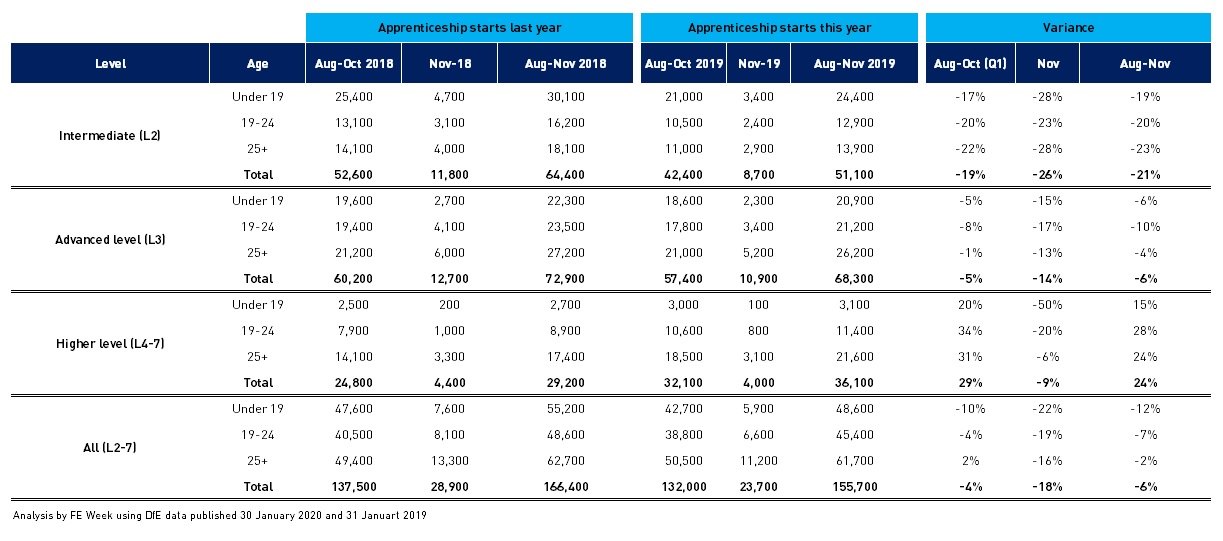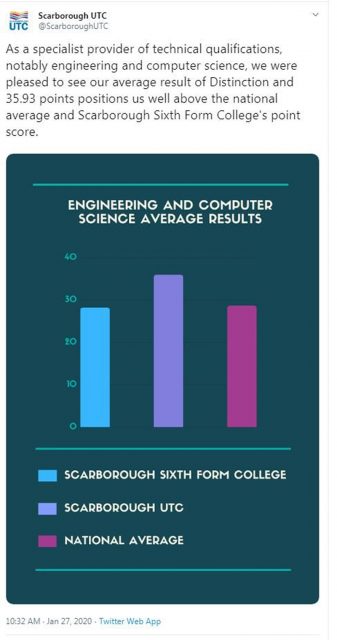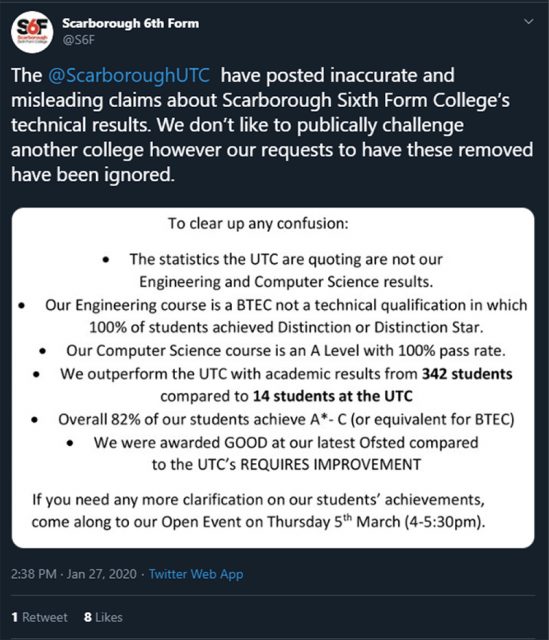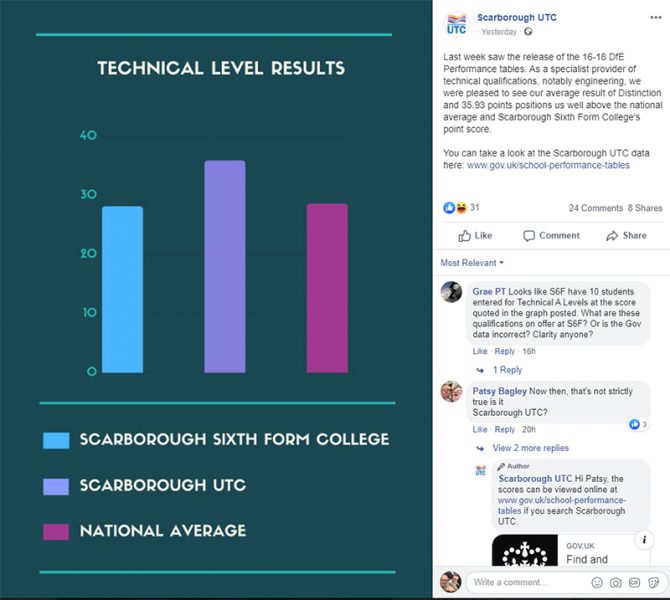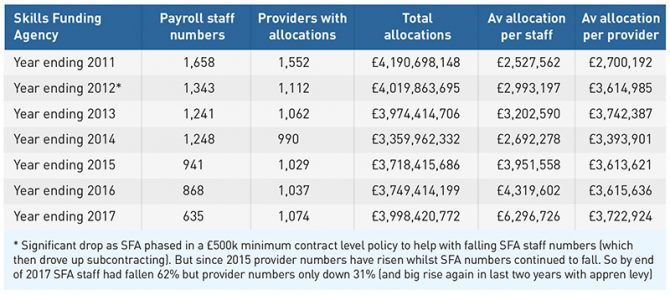Jess Staufenberg meets an education researcher with a unique and singular focus on teaching in further education
Professor Kevin Orr of the University of Huddersfield has spent his whole career teaching or researching into teaching in the further education sector. Listening to his soft Belfast lilt as he eloquently explains both roles, it strikes me that two things are unusual about Orr.
The first is that he is the only grammar-school educated person, who moved seamlessly through a selective school and on to an academic university degree, I’ve spoken to whose career has then been dedicated to further education. Usually FE leaders left school around 16, worked as apprentices, in factories or worked their way up from receptionists, and they have a deep affinity with the purpose of FE as a result. Not so with Orr.
Second, he is obsessed with teaching – not assessment, not Ofsted, not workload, not the unions – but with teaching and pedagogy. Only when you speak to someone whose sole interest is actual teaching do you realise this is too rarely the subject of conversation among FE leaders. Orr is one of the leading researchers in this area, with his most recent publication on “enhancing subject specialist pedagogy” out in March last year. Currently, he is looking into higher education courses delivered in further education settings.
So how did a grammar-school boy come to FE?
“My own educational career was a very traditionally academic one. Interestingly the school I went to, the Belfast Academical Institution, was right beside Belfast Tech, which is an enormous and very impressive building. It had the best technical facilities in the whole of Europe, even better than Germany. That this amazing building was on the lawn of the grammar school in a way symbolized the divide between technical and academic education. The irony is not lost on me that I’m a grammar school boy who is an advocate for further education.”
The irony is not lost on me that I’m a grammar school boy advocating for FE
The school was mainly for Protestant pupils, and Orr and his three sisters were encouraged by their mother to move away from Northern Ireland to escape sectarian tensions and better their prospects, something which “broke her heart”, explains Orr.
With strong A-level results, he studied French and history at the University of Manchester, a decision mainly swayed by the existence of the huge new nightclub there, The Hacienda. “Bear in mind I was coming from Belfast in the 80s, so excitement was hard to find! The opening of this new nightclub was a big deal.” Safely through grammar school and packed off to an English university, a career in FE wasn’t the obvious route. But one observation from Orr’s childhood stayed with him.

“My dad had done an apprenticeship in textiles and he’d worked at York Street Mill, which was the largest linen works in the world at the time. The industry collapsed and he lost his job, not because of a lack of skilled workers, but because of the development of nylon and artificial fibres. And that’s important for me when thinking about FE today. While it’s right we prepare young people for the world of work, history shows us the nature of work can change very quickly. We need to make sure we are not just educating people for a particular job, but educating them to be prepared for their lives.”
This view is reflected in Orr’s first permanent job in FE, teaching French at Stockport College in 1992. I am taken aback when he explains he was teaching French to builders, to broaden their education. “That wasn’t considered unusual at the time, it was just to give a different dimension to their learning. I also taught French to students doing early childcare. That was quickly cut after incorporation. But it wasn’t considered outlandish then, there was a real commitment to these students not just as people who were going to work, but as people who were going to live. I think sometimes we might be losing that.”
It is perhaps this background as a languages teacher, and later a teacher of English for speakers of other languages (ESOL), that means Orr takes a much broader view of the purpose of further education than some of its champions. Rather than regarding FE as providing people with necessary skills, he seems interested in the transformative joy of learning and teaching – including builders learning French they may never need.
Orr then landed an ESOL teacher job at Tameside College in Greater Manchester in 2002 and enrolled on a masters in Teaching at Manchester Metropolitan University. “That was completely transformative,” he says. “I had a chance to watch people teaching in nursery, higher education, further education – it really challenged me to consider how I applied my values in the classroom.”

He speaks with an enthusiasm about the process of teaching that I’ve rarely encountered before. Should all teachers to do a masters in teaching?
“I would be cautious about saying everyone has to have an MA, but if we are to develop excellent vocational and technical education in this country, we have to have qualified teachers.” A requirement for qualified status was introduced by New Labour and then removed in 2013 under the Conservatives.
“It’s a shame teachers in FE don’t have to be qualified,” warns Orr. “We’ve had so many reforms in one form or another, but unless the people implementing them have excellent knowledge and skills about teaching, they won’t work. Too often, reform has overlooked teachers in education.”
Later, he puts this even more brilliantly. “I think very often policy change has been in the form of assessment, but not the process of teaching.”
Policy change has been in the form of assessment, but not the process of teaching
Orr is one of a handful of researchers in FE who has spent a lifetime trying to drag the importance of teaching back to the fore of any improvement efforts. Following his MA, and whilst working as a teacher trainer at the now-closed Manchester College of Arts and Technology, he won funding for a PhD at the University of Huddersfield to look into the experiences of trainee teachers in FE. The leading researchers he met took him “into a world where research into FE was taken very seriously.”
It is perhaps this background as a languages teacher, and later a teacher of English for speakers of other languages (ESOL), that means Orr takes a much broader view of the purpose of further education than some of its champions. Rather than regarding FE as providing people with necessary skills, he seems interested in the transformative joy of learning and teaching – including builders learning French they may never need.
Orr then landed an ESOL teacher job at Tameside College in Greater Manchester in 2002 and enrolled on a masters in Teaching at Manchester Metropolitan University. “That was completely transformative,” he says. “I had a chance to watch people teaching in nursery, higher education, further education – it really challenged me to consider how I applied my values in the classroom.”
He speaks with an enthusiasm about the process of teaching that I’ve rarely encountered before. Should all teachers to do a masters in Teaching?
“I would be cautious about saying everyone has to have an MA, but if we are to develop excellent vocational and technical education in this country, we have to have qualified teachers.” A requirement for qualified status was introduced by New Labour and then removed in 2013 under the Conservatives.
“It’s a shame teachers in FE don’t have to be qualified,” warns Orr. “We’ve had so many reforms in one form or another, but unless the people implementing them have excellent knowledge and skills about teaching, they won’t work. Too often, reform has overlooked teachers in education.”
Later, he puts this even more brilliantly. “I think very often policy change has been in the form of assessment, but not the process of teaching.”
Orr is one of a handful of researchers in FE who has spent a lifetime trying to drag the importance of teaching back to the fore of any improvement efforts. Following his MA, and whilst working as a teacher trainer at the now-closed Manchester College of Arts and Technology, he won funding for a PhD at the University of Huddersfield to look into the experiences of trainee teachers in FE. The leading researchers he met took him “into a world where research into FE was taken very seriously.”
Some have a very restricted perception of what the role of a teacher is
Orr’s most recent published research was funded by the Gatsby Foundation, which tasked him and his team to understand the role of subject-specialist pedagogy in teacher education – in particular, whether improving the subject knowledge of trainee teachers was the best way to improve technical education in colleges.
Orr’s team created an intervention of face-to-face sessions, videos and online resources, with the aim of prompting the trainee teachers to think about the way they were using their subject knowledge to lead the lesson. “Our intervention was there to help trainees think about sequencing topics, knowing what questions to ask and so on. Teaching is complex and multi-faceted, and this was a way to get them to think about it.”

The findings from the research are telling. In the conclusion, Orr’s paper states: “Despite the generally enthusiastic response to the intervention from both trainees and teacher educators, the lasting impact on individuals’ practice was limited […] This was mainly due to conflicting pressures that restricted their capacity to innovate, mainly associated with workload and the general instability of many FE colleges at a time of cuts and mergers. For some participants it reflected a very restricted perception of what the role of a teacher is, which does not include innovation.”
During our interview, Orr says the word “teaching” 20 times. It is way above the average when I speak to FE bosses. Since Orr is not actually a teacher anymore but an academic, it seems something is not right when he is more enthused about the technical skill of teaching than others in the sector, who are swamped by policy change and funding cuts. But Orr is undeterred, with two more research projects lined up: one on why some students choose to study degrees in college rather than university settings, and another on the experiences of black and minority ethnic students in FE.
He reflects back on his first encounter with teaching, at a youth outreach centre after he’d graduated, just a few years out of grammar school. “I was hooked. It was so exciting. That was when I thought, ‘I want to become a teacher.’”
At a time when retention of teachers is such a challenge, Orr’s total prioritisation of their professional growth and experience is a lesson the government would do well to follow.
